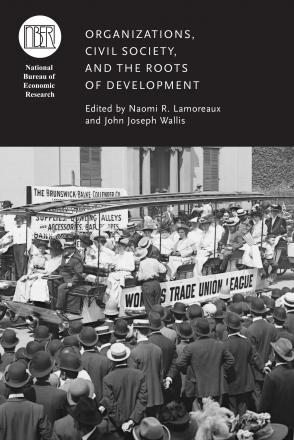Introduction to "Organizations, Civil Society, and the Roots of Development"

This volume starts from the premise that modern developed societies are rich and secure in large measure because individual citizens possess the civil right to form organizations and because they have access for this purpose to a set of legal tools that the government provides to everyone on essentially the same terms. The editors’ introduction lays out a general theory of organizations and their role in political and economic systems. Drawing on the framework developed by North, Wallis, and Weingast (NWW) for their book Violence and Social Orders, it argues that most societies in the contemporary world, as well as almost all societies throughout human history, are/have been what NWW call “natural states.” A natural state limits violence and creates order through a particular social technology centered on organizations. Powerful groups limit the ability of individuals to form many types of economic and social organizations in order to create economic rents that provide incentives for them to respect each other’s interests and maintain order. This type of order is generally fragile because the rents that sustain the peace are subject to constantly changing conditions. When natural states break down, however, they are usually reconstituted on essentially similar terms.
-
-
Copy CitationNaomi R. Lamoreaux and John Joseph Wallis, Organizations, Civil Society, and the Roots of Development (University of Chicago Press, 2017), https://www.nber.org/books-and-chapters/organizations-civil-society-and-roots-development/introduction-organizations-civil-society-and-roots-development.Download Citation


